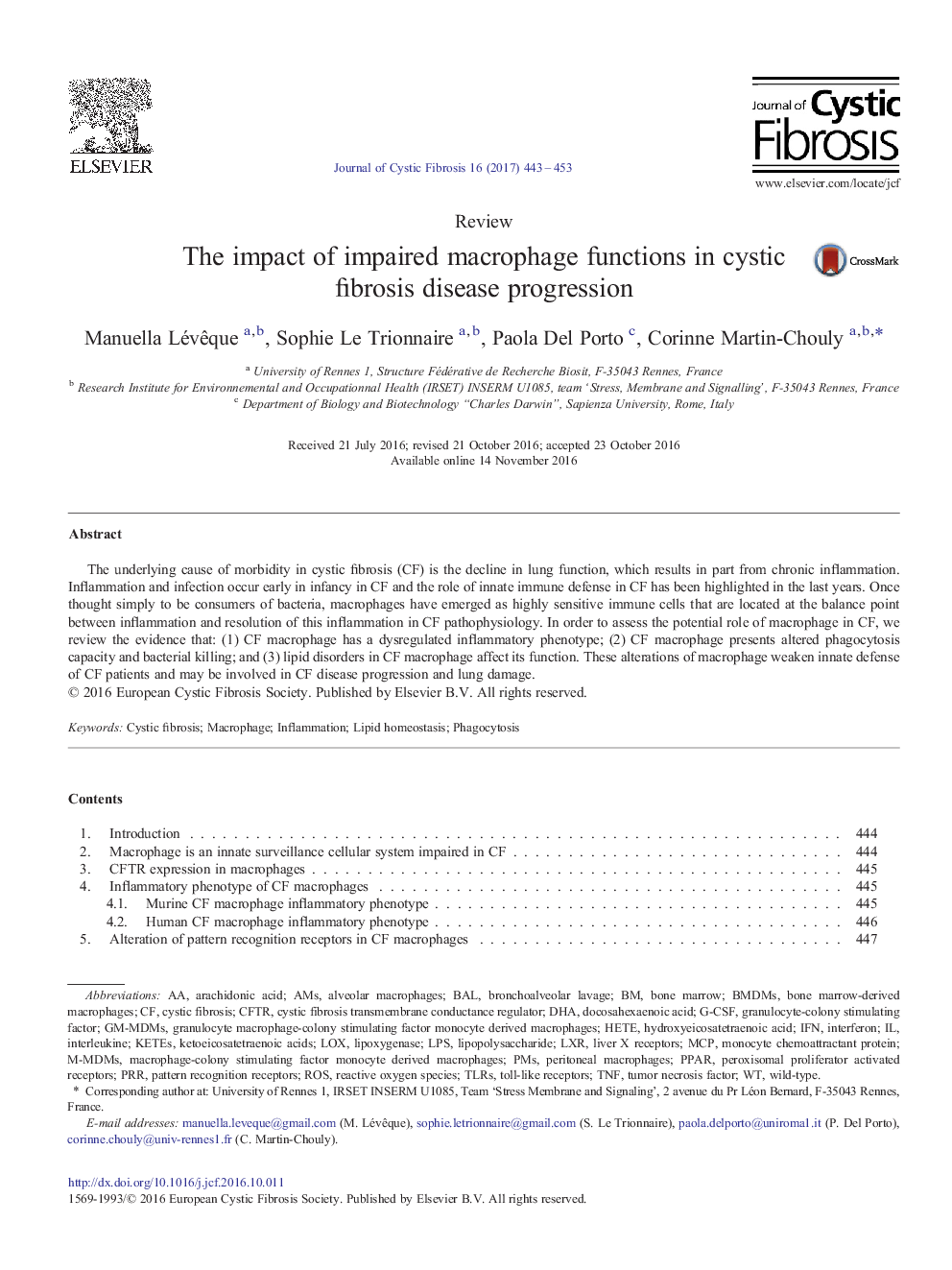| Article ID | Journal | Published Year | Pages | File Type |
|---|---|---|---|---|
| 5724542 | Journal of Cystic Fibrosis | 2017 | 11 Pages |
The underlying cause of morbidity in cystic fibrosis (CF) is the decline in lung function, which results in part from chronic inflammation. Inflammation and infection occur early in infancy in CF and the role of innate immune defense in CF has been highlighted in the last years. Once thought simply to be consumers of bacteria, macrophages have emerged as highly sensitive immune cells that are located at the balance point between inflammation and resolution of this inflammation in CF pathophysiology. In order to assess the potential role of macrophage in CF, we review the evidence that: (1) CF macrophage has a dysregulated inflammatory phenotype; (2) CF macrophage presents altered phagocytosis capacity and bacterial killing; and (3) lipid disorders in CF macrophage affect its function. These alterations of macrophage weaken innate defense of CF patients and may be involved in CF disease progression and lung damage.
